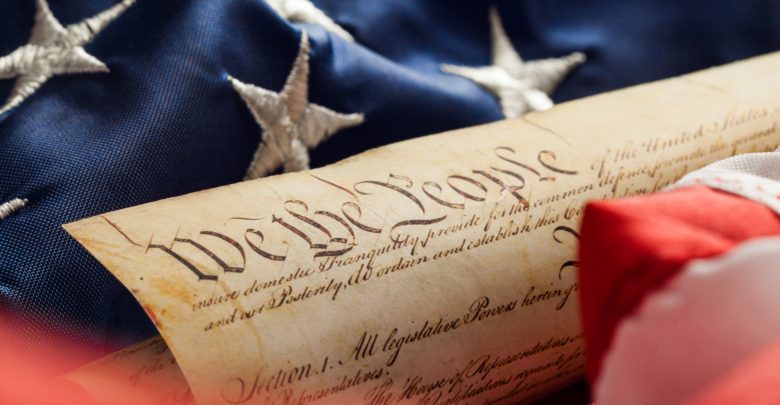Alito’s Draft Opinion Threatens Rights Beyond Abortion

Supreme Court Justice Samuel Alito’s draft opinion in Dobbs v. Jackson Women’s Health Organization would not only obliterate a woman’s constitutional right to an abortion, it would also imperil other fundamental rights to make and implement intimate personal decisions without government interference.
In an apparent effort to fend off criticism that his draft opinion in Dobbs, if adopted as the Court’s decision, would have far reaching consequences beyond overruling the Supreme Court’s two seminal decisions recognizing and defining abortion decisions, Roe v. Wade and Planned Parenthood v. Casey, Justice Alito blithely tells us not to worry:
“[T]o assure that this decision is not misunderstood or mischaracterized, we emphasize that our decision concerns the constitutional right to abortion and no other right. Nothing in this opinion should be understood to cast doubt on precedents that do not concern abortion.”
Don’t believe a word of it.
While the “no other right” disclaimer, if it survives in the final opinion, might inhibit future advocates from arguing that the holding in Dobbs directly overrules other precedents, the logic and reasoning behind Alito’s draft opinion will certainly be used, sometimes successfully, to attack other precedents protecting the right to be left alone by the government.
The road Alito carves out leads only in one direction.
Alito’s path to overruling Roe and Casey is based largely on the proposition that judicial recognition of rights not expressly mentioned in the Constitution requires that any such right must be “deeply rooted in this Nation’s history and tradition” and “implicit in the concept of ordered liberty.”
A lengthy slog through history dating back to before our nation was born leads Alito to “the inescapable conclusion” that “a right to abortion is not deeply rooted in the Nation’s history and traditions.”
That might make Alito’s analysis distinguishable from some of the Court’s other decisions recognizing rights not expressly mentioned in the Constitution, but not from all of them. For instance, it is arguable (although not without considerable evidence to the contrary) that the right of married individuals to engage in private consensual sexual acts is deeply rooted in our nation’s history. But can the same be said of same-sex marriage? Is the right to marry a person of a different race deeply rooted in our history? What about the right to engage in homosexual acts? Or the right to obtain and use contraceptives? Would any of those rights survive an Alito-style review of our social and legal history?
Alito next turns to whether a right to an abortion is “implicit in the concept of ordered liberty.” Alito correctly, if somewhat simplistically, notes that ordered liberty “sets limits and defines the boundary between competing interests,” and describes Roe and Casey as striking “a particular balance between the interests of a woman who wants an abortion and the interests of what they termed ‘potential life.’”
But in the very next breath, Alito casts aside the need for a balancing of the respective interests at stake in Dobbs. Balancing the respective interests of the pregnant woman and the unborn child, Alito tells us, is “a matter for the various states to decide in the political process, not the Supreme Court.”
In other words, after telling us that “ordered liberty” requires an analysis balancing competing interests, Alito simply refuses to perform one.
Alito’s refusal to engage in any attempt to balance the interests of the expectant mother against those of the unborn child is one of the signature flaws in his reasoning. And it is easy to see why he takes that path.
A good faith attempt to balance those respective rights – as opposed to a binary choice of a winner and a loser – would inevitably lead to something that looked too much like Roe and Casey for Alito’s lights. Those decisions, unlike Alito’s draft opinion in Dobbs, gave not only lip service to an ordered liberty analysis that “sets limits and defines the boundary between competing interests,” they actually performed them. Whatever their alleged flaws, Roe and Casey balanced the respective rights of the pregnant woman and the unborn child and attempted to set boundaries between them, in some circumstances in favor of the interests of the expectant mother and in others in favor of the interests of the unborn child. The drawing of those lines might sometimes appear awkward, and might sometimes require modification, but difficult line-drawing is nothing new to the judicial process.
Alito pins his refusal to balance the interests at stake in Dobbs on the proposition that abortion is different. Abortion, according to Alito, is a “unique act” because it terminates a “life or potential life:”
“What sharply distinguishes the abortion right from the rights recognized in the cases on which Roe and Casey rely is something that both those decisions acknowledged: Abortion destroys what those decisions call “potential life” and what the law at issue in this case regards as the life of an “unborn human being.” See Roe, 410 U. S., at 159 (abortion is “inherently different”); Casey, 505 U. S., at 852 (abortion is “a unique act”). None of the other decisions cited by Roe and Casey involved the critical moral question posed by abortion. They are therefore inapposite. They do not support the right to obtain an abortion, and by the same token, our conclusion that the Constitution does not confer such a right does not undermine them in any way.”
Accordingly, Alito tells us, when it comes to abortion, a balancing of the respective interests at stake is “a matter for the various states to decide in the political process, not the Supreme Court:”
“[T]he people of the various States may evaluate those interests differently. In some States, voters may believe that the abortion right should be more even more extensive than the right that Roe and Casey recognized. Voters in other States may wish to impose tight restrictions based on their belief that abortion destroys an “unborn human being.” Miss. Code Ann. §41- 41-191(4)(b). Our Nation’s historical understanding of ordered liberty does not prevent the people’s elected representatives from deciding how abortion should be regulated.”
To be sure, abortion is a unique act that poses a “critical moral question” that “the people of the various States may evaluate . . . differently.” But don’t the people of the various states also have differing evaluations of issues such as same sex marriage, interracial marriage, homosexuality and the use of contraceptives? Aren’t all of those issues considered by many to be “critical moral questions?” Under Alito’s reasoning, why should those issues be treated any differently?
By declaring that balancing competing interests is off limits to the judiciary in matters that implicate critical moral questions on which the people of the various states hold differing views, Alito opens the door for those who seek to roll back other rights recognized by the Supreme Court.
The same is true of Alito’s cavalier rejection, almost in passing, of the notion that a broader right of autonomy – the freedom to make intimate and personal choices without government interference – might provide justification for a right to abortion. Such a concept, he tells us, “at a high level of generality” could license fundamental rights to illicit drug use, prostitution, and the like.
So much for the right to privacy. Why even mention it? It’s just a refuge for drug addicts, prostitutes and others who fail to meet Alito’s high moral standards.
All of this would seem to leave only stare decisis, the legal doctrine that obligates courts to follow established judicial precedent when making a ruling on a similar case, as the only obstacle to weaponizing the logic and reasoning of Alito’s draft opinion in Dobbs to obliterate other fundamental rights.
But stare decisis isn’t a strong enough doctrine to assure that such an assault on rights will be rebuffed. As Alito tells us, and as his proposed opinion in Dobbs graphically illustrates, stare decisis is “not an inexorable demand.” The factors that might support a deviation from stare decisis – such as an analysis of the nature of the perceived error in the precedent, the “quality of the reasoning,” the “workability” of the rule, the “disruptive effect” on other areas of the law, and “the absence of concrete reliance” – are sufficiently broad and subjective to allow the Court to reject precedent pretty much whenever it feels strongly enough that the precedent is wrong.
So don’t believe for a moment Justice Alito’s insistence that nothing in his draft opinion should be understood to cast doubt on precedents that relate to matters other than abortion. The first decision in the Court’s history taking away one of our rights, if Alito’s draft or something close to it is adopted as the Court’s decision, won’t be the last.





Philip’s analysis is very interesting but quite worrying. I honestly did not think the potential ruling could be interpreted to “obliterate“ other basic rights but now I have changed my mind and agree with the article.
In my view, Justice Alito’s justification for the potential ruling is based on a religious belief rather than a proper legal analysis. So much for the separation of church and state !